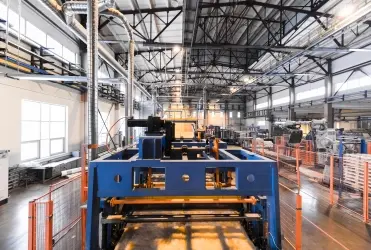Monday-Saturday:
Precision Engineering for a Sustainable Future: Redefining Manufacturing Practices
Introduction
In a technology defined with the aid of environmental recognition and aid scarcity, sustainable production has emerged as an important vital for industries worldwide. At the heart of this motion lies precision engineering—a subject that seeks to optimise efficiency, minimise waste, and maximise overall performance. Join us as we discover the transformative role of precision engineering in shaping a greater sustainable destiny for production.
Optimising Material Usage
One of the essential concepts of precision engineering is maximising the fee extracted from uncooked materials even as minimising waste. Through advanced machining techniques, such as Computer Numerical Control (CNC) machining and laser cutting, manufacturers can reap unparalleled precision and accuracy, lowering material waste and optimising resource usage. By embracing lean manufacturing standards and designing for minimal material intake, precision engineers can drastically reduce the environmental footprint of producing operations.
Energy-Efficient Manufacturing Processes
Precision engineering includes an extensive range of technology and strategies geared toward enhancing electricity efficiency for the duration of the manufacturing lifecycle. From power-green machining equipment to smart manufacturing facility automation systems, manufacturers can leverage precision engineering solutions to decrease energy intake and reduce greenhouse gas emissions. By optimising manners, streamlining workflows, and implementing electricity-saving technologies, precision engineers play an important role in riding down production's carbon footprint and selling sustainability.
Designing for Life Cycle Sustainability
In addition to optimising manufacturing procedures, precision engineers also focus on designing products with lifecycle sustainability in mind. By incorporating principles of Design for Environment (DfE) and Design for Disassembly (DfD), manufacturers can create products which might be less difficult to recycle, repair, and reuse, minimising stop-of-existence waste and maximising resource restoration. Through collaborative design methods and revolutionary materials choice, precision engineers can assist pave the way for a circular economic system in which merchandise are designed to last, and resources are saved in use for as long as possible.
Promoting Environmental Stewardship
Beyond the manufacturing facility ground, precision engineering extends to the wider environment of environmental stewardship and company duty. By partnering with providers dedicated to sustainable practices, imposing environmentally pleasant packaging answers, and tasty in community outreach projects, manufacturers can display their commitment to sustainability and inspire tremendous change across the industry. Through transparency, duty, and continuous improvement, precision engineering firms can lead the rate toward an extra sustainable destiny for manufacturing.
Conclusion
As the world grapples with the urgent challenges of weather exchange and environmental degradation, the role of precision engineering in sustainable manufacturing has by no means been more critical. By embracing innovation, optimising methods, and designing with sustainability in mind, precision engineers have the electricity to convert the manufacturing landscape and create a more sustainable future for generations to come.
We are a top-tier engineering manufacturer that offers our clients the best goods, services, and solutions available.
-
Toll Free Number
+9173593 52645 -
Send us an e-mail.
jpsonsengineering@gmail.com -
Working Hours
Mon - Sat: 9AM - 6PM


FAQ's
What is precision engineering, and how does it contribute to a sustainable future in manufacturing?
Precision engineering involves designing and manufacturing components with extremely tight tolerances and high accuracy. It contributes to sustainability by minimising material waste, optimising energy usage, and improving product quality and longevity. Through precise design and production processes, manufacturers can reduce environmental impact and resource consumption.
How does precision engineering support the transition towards a circular economy and environmentally friendly manufacturing?
Precision engineering enables the design of products for disassembly, remanufacturing, and recycling, supporting a circular economy model. By designing products with durable materials, easy-to-repair features, and standardised components, manufacturers can extend product life cycles, reduce waste, and promote resource efficiency. Precision engineering also facilitates the use of eco-friendly materials and sustainable manufacturing practices, further enhancing environmental sustainability.
What are some examples of precision engineering innovations that promote sustainability in manufacturing practices?
Examples include advanced machining techniques like Computer Numerical Control (CNC) machining, which reduces material waste and energy consumption. Additive manufacturing technologies, such as 3D printing, enable more efficient use of materials and customization, while digital twin simulations optimise product design and manufacturing processes, reducing trial-and-error iterations and minimising resource use.